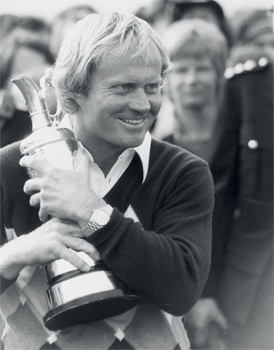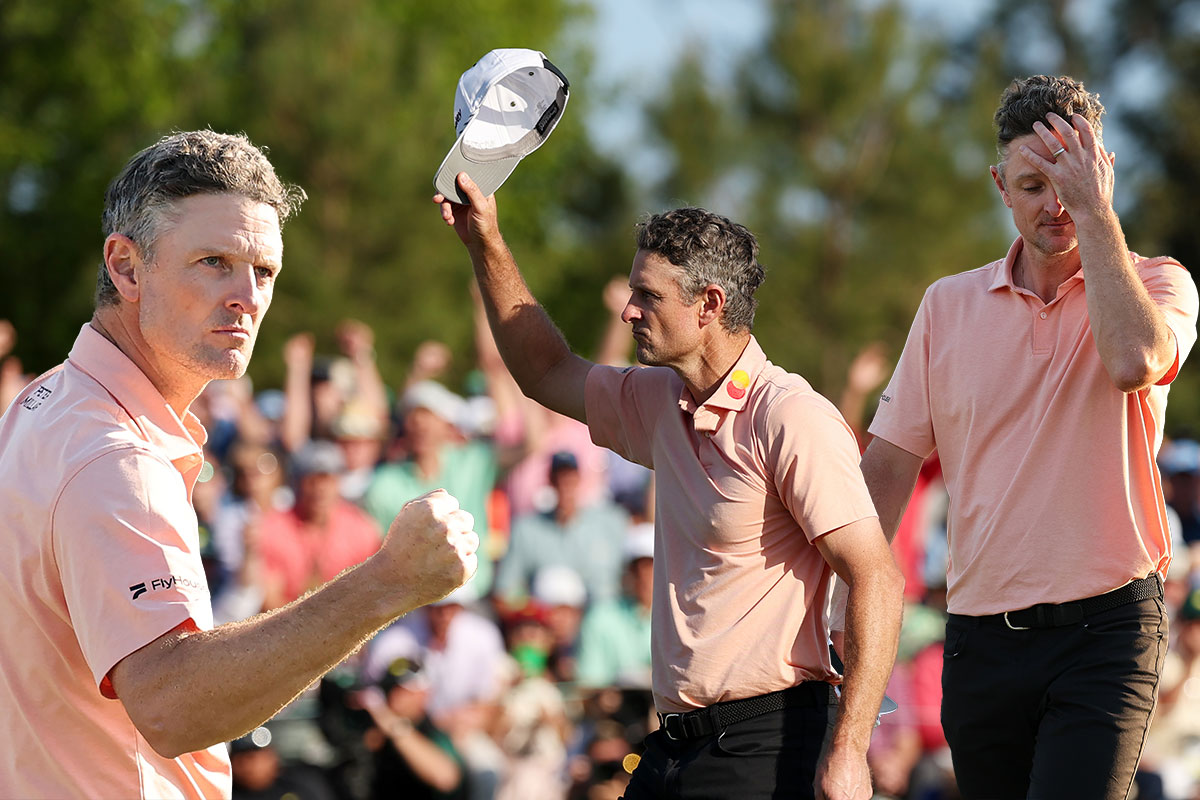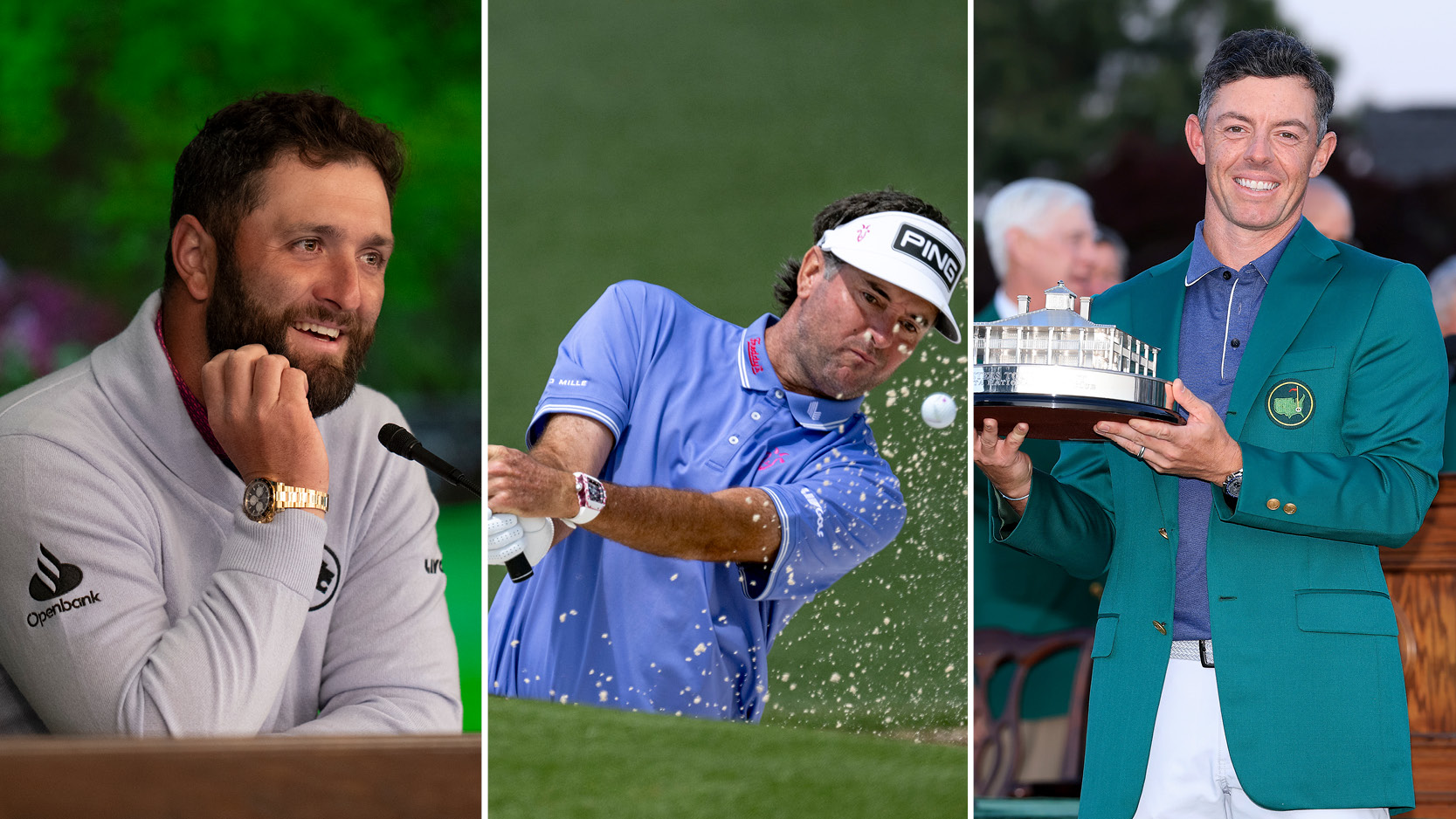Jack’s Guide To Winning The Open
No man knows how to perform in Major championships better than the man who was in the top three 55 times. Treble Open champion Jack Nicklaus talks to Bill Elliott

The thing about Jack Nicklaus is not the 18 victories, it is the 18 runner-up spots and the 19 third places that he laid before our startled gaze during his romp through the Majors, a sensational march that began with a second place in the US Open of 1960 and ended vibrantly with his 1986 Masters triumph, by which time he was 46 years old.
It is a career unsurpassed in its glorious longevity, a sporting tale that is embroidered with all the best that sport may offer. As a pro he remains to this point a man alone, while as a natural sportsman his grace whether in victory or defeat is a reference point for everyone connected with playing games for a living.
He has been lucky to have been blessed with a brilliant wife. His children are a testimony to Barbara?s determination to raise them properly and a compliment to his ability to merge his wage-earning life with the consistent role of a committed father. His proudest boast now is nothing to do with golf, it is the fact that these kids have chosen to carry out their own married lives within a 20-minute drive of the old family home in Florida.
Reassuringly, he is not perfect. I?ve known him to be tetchy, irascible and grumpily impatient over the years. But he also has been fine company, a man willing to take a beer and shoot the breeze. Whenever he won a Major, we reporters all settled down in the interview room. We were happily in for the long haul whenever Jack bummed a cigarette off someone ? he never smoked in public ? and began to yarn.
With most other champions these occasions last only as long as we have questions for guys who are only truly happy when they are talking about themselves. While Jack liked to talk about himself, too, the Major interviews soon meandered into something else, something you may only describe as a conversation. It turned out that Jack Nicklaus was damn near as interested in us as we were fascinated by him.
What is also beyond debate is that he, more than anyone before him, laid out the template for how to win Majors. Before him, players tried to focus on the big ones but no one devoted his pro life to winning the most glittering titles until Nicklaus entered the lists in the early 1960s. It is his cunning plan that Tiger Woods now follows, his extraordinary ability to strategically rehearse a round that only Woods has come close to emulating.
Whenever he speaks he is worth listening to. Opinionated? Yes. Sure of his own validity to express these opinions? Of course. And the fact that he is still happy to talk to us suggests a man who remains in love with the game that defined his life. We caught up with him at his beloved Muirfield Village club. What follows is, as ever, a masterclass.
Get the Golf Monthly Newsletter
Subscribe to the Golf Monthly newsletter to stay up to date with all the latest tour news, equipment news, reviews, head-to-heads and buyer’s guides from our team of experienced experts.
GM What are the key skills a player will need to win the Open Championship this year?
I see no reason why the skills needed over many years and decades would not be the same essential skills needed to win this Open ? you need to drive it straight, play good iron shots, possess the ability to recover well, and, of course, you need to putt well.
Having said that, Carnoustie is a tough course and I think that there are certain holes on Carnoustie that you?ve probably got to be very careful of. Certainly more careful than I was at the 6th hole where I hit it out of bounds in the last round and it cost me the Open in 1975. Then there were the trials and tribulations of Van de Velde on the 18th. It is a golf course you have to take advantage of when you have the opportunity to do so, and you have to protect yourself and your score on the holes that are dangerous ? and there are more dangerous holes at Carnoustie perhaps than at most Open courses.
GM What role does luck play in winning an Open?
Sometimes luck plays a great role and sometimes it doesn?t play any. Carnoustie is hard, and there will be a lot of bounces that will be favourable or unfavourable. So luck could play a very big part, and it generally does play a part at the British Open. I think when you look at a course like St Andrews, there can be a lot of luck involved at times. And at Carnoustie, I think there is at times. I don?t think there is as much luck involved in, say, a Muirfield and the courses that are a little more straightforward.
GM Have the skills needed to win an Open changed significantly since you won your three championships?
I don?t think so. I certainly think the game has changed, but I don?t think the skills needed to be successful have changed. The power of the game is so different today, but I still think the British Open is probably the most consistent of all the Major championships in its set-up. If you had to play an iron off the tee 30 years ago, you just have to play less of an iron today.
GM How did you alter your preparations for an Open compared with a regular tour event?
We only played a British Open course once a year and we only played that one in the rotation probably every six, seven or eight years. Whatever changes were made on the golf course, whatever the nuances were, whatever the most common conditions were, you had to come back and relearn them. And how to play seaside links golf was always a thing that you had to get accustomed to again. That is why I always made sure I came a week ahead of time, so that I had time to best prepare myself.
GM How did your three Open victories compare?
That?s difficult to really answer, because they were all so different and so special. Winning at Muirfield was special, because it was a golf course I was not supposed to win on, and it took a game that was not considered a strength of mine at that time. That victory was so meaningful to me, a few years later I named my Ohio home club (Muirfield Village) after that venue.
In 1970, winning at St Andrews was extremely special. I fell in love with the Old Course the first time I played it in 1964. It had a certain charm, beauty and mystique to it. Of course, Bob Jones always said that your career was not complete until you won at St Andrews ? the home of golf. Then, to go back there and win again in 1978 was just as memorable. The Scots have always been so kind to me. They have a deep appreciation and respect for the game, and they always were so supportive of me. They embraced me as one of their own. I will never forget walking up the 18th fairway in that final round. There were people hanging from windows, yelling and cheering. I had tears in my eyes the entire walk up the fairway.
GM Which was the most complete performance?
Honestly, I think they all were. I could not pick one over the other. They were all quite good, in my opinion. Muirfield was very tight and demanding, so that was a disciplined type of win. St Andrews is about trying to avoid bunkers, trying to avoid penalties, and playing good solid golf. You have to take a different approachto the two golf courses but the game is still the same. You have to keep it out of the bunkers and out of the places where you could have a big number.
GM Which was the hardest to win and why?
I have always said the first Major is the most difficult to win, and with Muirfield that was certainly the case. Not only was it my first, but the conditions were probably not as well-suited to my game as a lot of other places.
GM Why do you think a number of outsiders have won Majors, including the Open, in recent years?
You have to realise that this is a global game now. If you look back at the turn of the century, the game was dominated by the UK. Then, Francis Ouimet, with his US Open victory in 1913, sort of set the stage for the likes of Sarazen, Jones, Nelson, Hogan, Snead and Palmer ? legendary American players. A few decades later, the United States found itself dominating the game. Now, it appears we have come full circle. The game is truly global. Look back at the World Match Play Championship earlier this year in Tucson (Arizona). Of the 64 players in the field, only 22 were Americans, and the winner was Swedish. Then, simply look at the Memorial Tournament last week. Our winner, K J Choi, was not only from Korea, but six of the top 10 were foreign players, including four Australians.
GM Will Tiger win this year? If not, why not?
I don?t know. He certainly will be the favourite, but I don?t know.
GM Which other players do you think will make a serious challenge?
This might be a simplistic answer, but take a look at the world rankings. That is probably the best determination of who is playing well on a global basis, and the Open is perhaps the most global of all the Major championships.
GM Why do you think that a European golfer has not won a Major since Paul Lawrie at Carnoustie last time?
I don?t know. Perhaps they are saving it for the Ryder Cup. They are either saving it up or still enjoying the last one!
Jack Nicklaus is an RBS ambassador
-
 I'm Thrilled For Rory McIlroy But Gutted For Class Act Justin Rose... I'd Love Him To Win Another Major
I'm Thrilled For Rory McIlroy But Gutted For Class Act Justin Rose... I'd Love Him To Win Another MajorJustin Rose pushed Rory McIlroy all the way in The Masters, and while I am super impressed by the Career Grand Slam, part of me is hurting for the Englishman...
By Barry Plummer Published
-
 The Watches Of The Masters - Bubba Watson's $2.5 Million Richard Mille Features Again While Rory McIlroy Celebrates Victory In $15,000 Omega
The Watches Of The Masters - Bubba Watson's $2.5 Million Richard Mille Features Again While Rory McIlroy Celebrates Victory In $15,000 OmegaSeveral stars from the world of golf were spotted wearing designer watches throughout the week at Augusta National, where Rory McIlroy claimed his first Green Jacket
By Matt Cradock Published